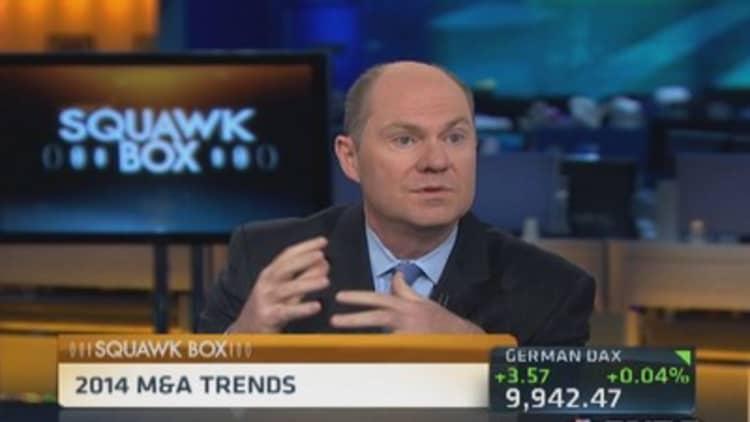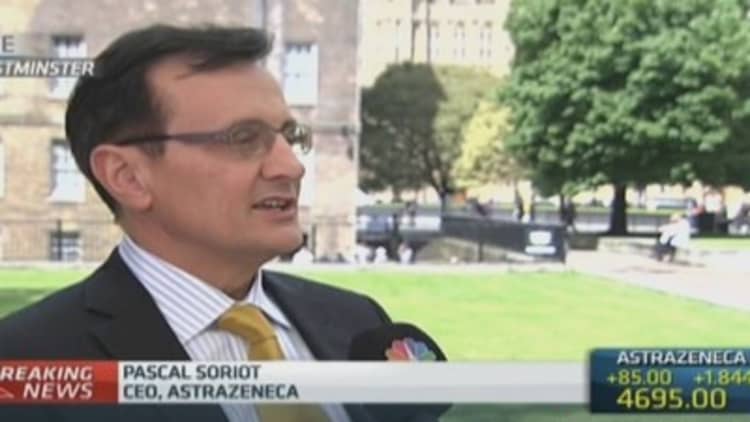The value of potential takeovers yanked from the market is at its highest level since the height of the global credit crisis in 2008, according to market statistics firm Dealogic.
Withdrawn mergers and acquisitions now total $300.5bn in 2014 so far, almost double the $153.4bn withdrawn at the same point in 2013 and the highest since 2008. After plenty of confident predictions that 2014 would be a great year for corporate buying and selling, this seems to have not quite taken off.

Read MoreM&A activity set to hit pre-crisis levels
This is due, in part, to the collapse of one big, headline-grabbing bid which was large enough to affect volumes all by itself. When big pharma company Pfizer withdrew its $122.6 billion bid for AstraZeneca, this became the second largest bid ever to be withdrawn, after mining giant BHP Billiton's $147.8 billion offer for Rio Tinto in November 2008.
The AstraZeneca/Pfizer collapse (for now) highlighted a number of reasons for the rise in withdrawn deals.
Read MoreIs M&A fever back?
"Political and regulatory aspects of big transactions are becoming more intrusive. There's a real shift on the part of boards, into thinking not just of shareholders but of other stakeholders," John van Rossen, a partner at Ernst & Young specializing in transactions, told CNBC.
The U.K. government weighing in on the Pfizer bid, and France getting involved in Alstom's future, marks a trend that is set to continue.
"In the post-crisis world, (bidding) companies are being more cautious and scrutiny has been increased," Sriram Prakash, head of M&A insights at Deloitte, told CNBC.
"Bidding companies need to be much better prepared, and clearer about what the end game is."

Valuations are going up – and that is making it more difficult to find a premium that's acceptable for both the buyer and seller. Boards of acquisition targets are also becoming more confident about the economic climate and, therefore, their ability to deliver on promises on their own.
Still, "the ingredients are still there" for this to be a boom year for M&A, according to van Rossen.
The volume of deals being withdrawn has actually remained at around 3 percent for the past few years, which has continued this year, according to Deloitte.
Read MoreWhich M&A deal is best for shareholders?
We are less than six months into 2013. And not all of these deals are permanently off the table. If Pfizer comes back to AstraZeneca with a sweetened bid in November, after the six months mandated by the U.K.'s Takeover Panel, the deal would be enough to skew overall transaction volumes right back upwards again.
"Overall, it will definitely be higher than last year, but maybe not quite the record year which had been predicted," according to Prakash.


